
| Home |
| Glossary |
| Lobstering |
| Some Facts |
| Handling Gear |
| Wildlife |
| Tools |
| A Day at Sea |
| The Boat |
| Lobsters |
| Facts |
| Molting |
| Eggers |
| Oversized |
| The Sea |
| About Tides |
| Misc |
| Credits |
| Site Policy |
| The Author |
| Today's Hi/Lo Tides |
01/18/26
04:30 1.083 L
10:46 9.226 H
17:11 0.005 L
23:25 7.942 H
Station: Fort Point, NH
Station-local tide times. Height in Feet (MLLW).
Data are predictions supplied by the NOAA Tidal Predictions
Web Service.
Last updated:
01/18/26 05:59 UTC |
Handling the Gear
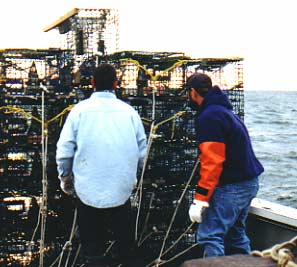 
The captain and his deck-hand check the traps. To the right is a seemingly unorganized mass of lines and buoys on the deck attached to the traps. When everything is layed up correctly, believe it or not, the lines play out just right. |
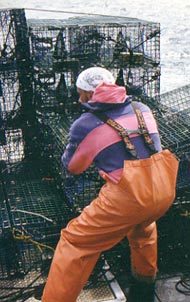
The traps are taken off the stack in sequence . The last trap to be layed is in the lower right hand corner of the stack. At that point the deck-hand (who has to get the trap on the opposite rail and drop it) is almost at a full run on a deck with lines on the way out. I've seen him do this on days we were running in 4-6 foot seas. A mistake would be bad. |
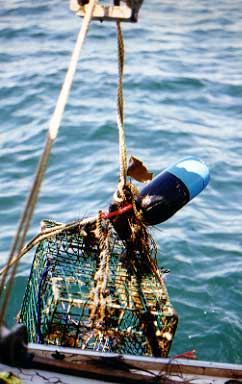 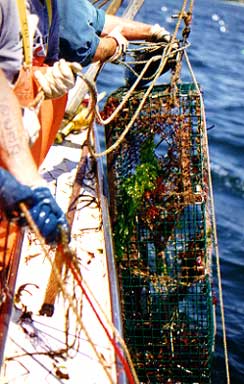
Unsnarling gear. |
|
| To the uninitiated (or inexperienced), setting traps in inshore water can appear to be a bit of a black art. There can be so many trap lines in the water that you think you could walk to shore on the buoys. I've seen the captain immediately haul a line he had just set because he knew he had either missed his target spot or was laying over someone else's gear. Exactly how he knows this without x-ray vision is still a mystery to me. There are a number of things that cause trap lines to move into each other causing them to tangle, but in this case it was a matter of a less experienced lobsterman setting a trap line over ours and probably not realizing it. If the owner of the mislayed gear sees this page, he will recognize his buoy colors immediately - and so will other local lobstermen. | |
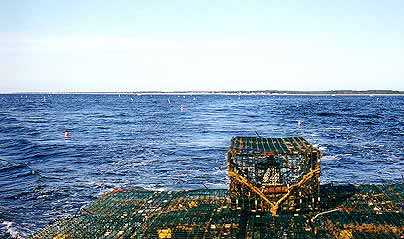
There can be a lot of gear in the water during the milder months. |
|